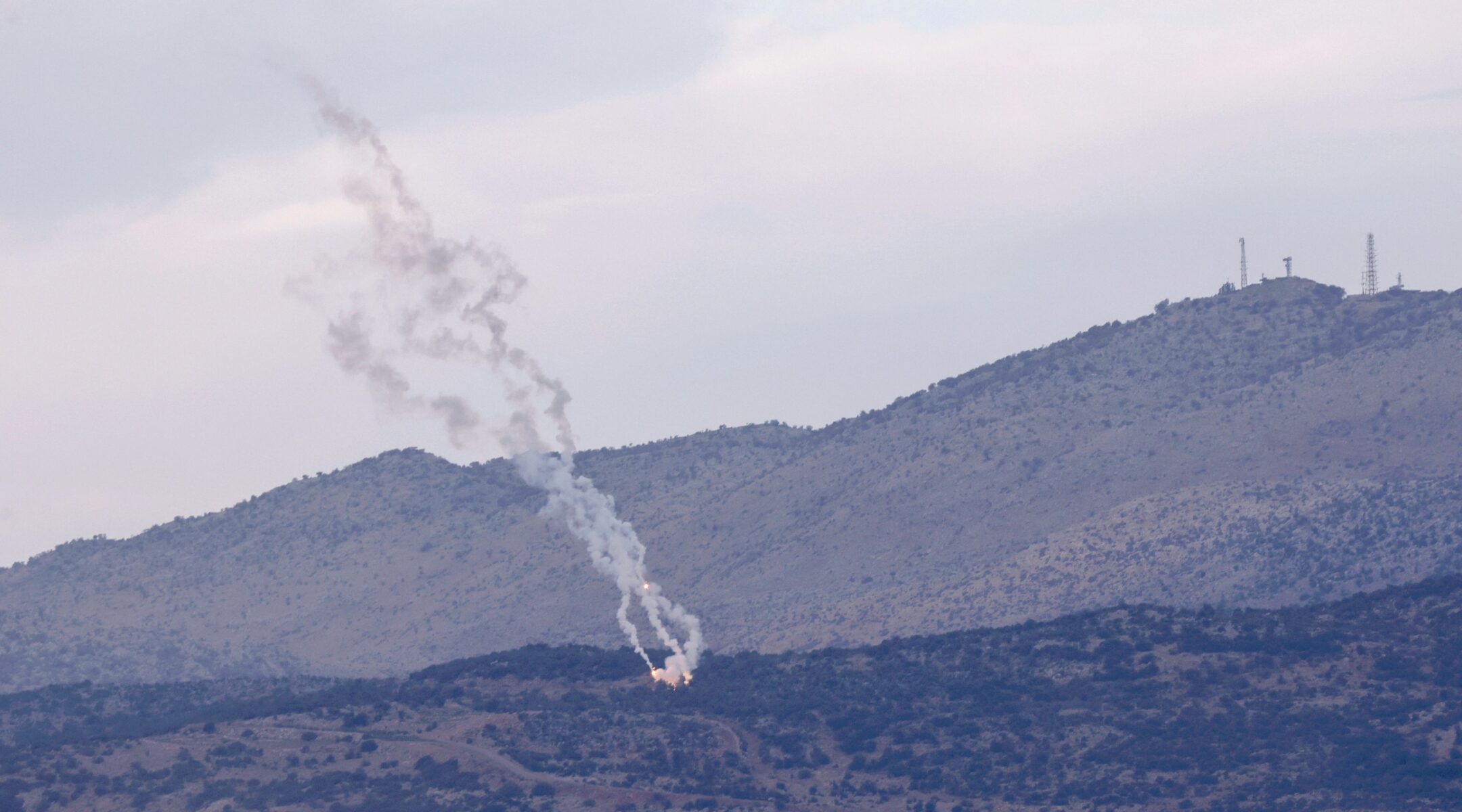(JTA) — As of early March, five months into Israel’s war with Hamas, American Jews felt close to Israel but were also likely to feel uncomfortable with its government’s actions, according to a Jewish Federations of North America poll.
Almost all of them also said they were deeply emotionally affected by news of the war, and many said they still felt somewhat concerned about their personal safety, although the proportion reporting safety concerns dropped since a similar poll in the early days of the war.
The survey released Thursday, which canvassed 1,901 Jews between Feb. 23 and March 11, found that 79% of respondents felt close to Israel, while 19% did not, and that 72% agreed that Israel, in general, made them proud to be Jewish, while 23% did not feel that way.
Asked whether they agree with the statement, “I sometimes find it hard to support actions taken by Israel or its government,” 62% said they agreed and 34% did not.
The results comport with recent polling that shows substantial American Jewish support for Israel in the war it has waged since Hamas attacked Israel on Oct. 7. A Pew survey released last month showed that Jews were likelier than Americans in general to back Israel’s reasons for fighting and its conduct in the war.
But it also comports with polling last year, before the war, showing increasing American Jewish disillusionment with Prime Minister Benjamin Netanyahu’s government. At the time of that poll, the government was seeking to overhaul Israel’s judiciary in ways that would reduce its independence.
Six months into the war, Israel is facing steeper pressure to adjust its prosecution of the war to limit civilian casualties. The survey found that the proportion of Americans who want to see a “total immediate unconditional ceasefire by all sides” — which Israel says is unacceptable because it would leave Hamas in power — has risen since the early days of the war, but only slightly, to 28% from 20%. Both Jews and respondents overall said their top condition for an end to hostilities would be the release of Israeli hostages.
JFNA President and CEO Eric Fingerhut zoomed in on that finding in a statement. (JFNA has played a central role in rallying American Jewish aid for Israel and is in the midst of allocating more than $800 million in donations received by its local member federations.)
“Americans understand that Israel’s fight against terrorism is also our fight. They know that a ceasefire without the return of the hostages and the eventual defeat of Hamas is wrong for Israel, wrong for Americans and wrong for the free world,” Fingerhut said. “The deep bond between the American and Israeli people remains as strong as ever despite the difficult political challenges of the past six months.”
Jews were much likelier to have an emotional reaction to the war than Americans overall, according to the survey, which asked some of the same questions of 4,143 non-Jews surveyed during the same period. Asked how much the war “emotionally affected” them, 92% of Jewish respondents said it did so “somewhat” or “a great deal,” compared to 48% of all respondents.
Asked if they were following the war closely, 96% of Jewish respondents said they were, while that figure for all respondents was 71%.
The pollsters, Benenson Strategy Group, weighted the answers to reflect the correct proportions of Jews and other segments of the American population. The margin of error for the survey was 2.25% for Jewish respondents and 1.26% for non-Jewish respondents, according to JFNA.
There were substantive differences in how Jewish and non-Jewish respondents answered questions about empathy with Israelis and Palestinians: 95% of Jewish respondents felt empathy with Israelis, while 74% of non-Jews did. Asked the same question about Palestinians, 57% of Jewish respondents said they felt empathy while 69% of non-Jewish respondents said they did.
JTA has documented Jewish history in real-time for over a century. Keep our journalism strong by joining us in supporting independent, award-winning reporting.






